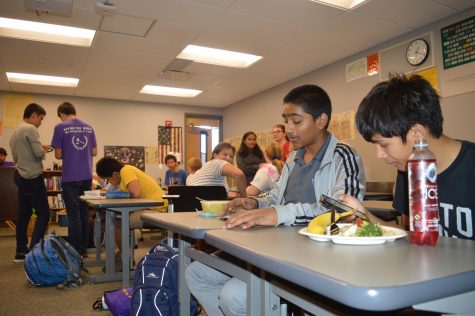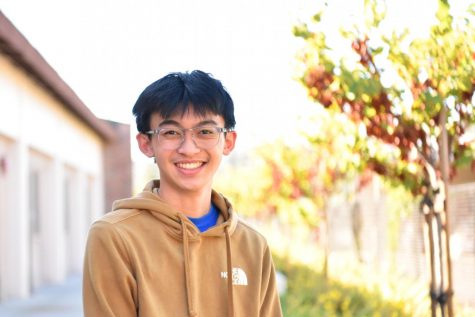Dungeons and Dragons starts off campaigns by creating new characters
New and returning members of Dungeons and Dragons club begin their campaigns by creating new in-game characters
October 17, 2019
In 1972, the first edition of the now popular tabletop role playing game, “Dungeons and Dragons” was developed and designed by Gary Gygax. In 2019, the game has found its way into MVHS’s Dungeons and Dragons Club (DnD Club). Sept. 27 marked a milestone for new and returning members alike — the creation of new characters.
The game is played by two groups of people. One Dungeon Master narrates the storyline of the game, while the rest of the players control characters in the game. To make actions in game, players roll a dice. A crucial part of Dungeons and Dragons is creating a character, through rolling dice for attributes and selecting races and combat classes. Characters can range from characters as wild as half-demon barbarians to as simple as human knights.
Sophomore Aaditya Ravula is a member of DnD Club, and during sessions, he plays as a halfling warlock who was gifted magical powers by a death god.
“[If] you’ve always wanted [a] specific combination of traits, you can make that combination of traits,” Ravula said. “You can … customize [characters] to your own exact liking.”
Ravula started playing DnD last year, and has been playing at DnD Club since. He says,what keeps him coming back is the ability to do anything.
“In video games there’s … an action tree,” Ravula said. “There’s some things you can do, there [are] some things you can’t do. But then in DnD, there’s no such [action tree]. You can do literally anything you want to do.”
An action tree is a path of actions that branches off into other options, resulting in multiple different endings. For example, if a character chose to save a dragon rather than kill it, the Dungeon Master might have the dragon give the players treasure later in the game.

Members of Dungeons and Dragons Club create characters and socialize during a lunch meeting.
Sophomore Arnav Rathee, a Dungeon Master for a campaign at DnD club, agrees that much of DnD’s appeal stems from its flexibility for different in game options.
“I think that DnD [Club] is a great place for you to simply sit down, relax and do whatever you want, really, because DnD is freedom,” Rathee said. “There’s no programmer, there’s no writer who’s telling you what to do, you simply do what you want to do. And the person who’s running your game decides whether you can do it [or not].”
AP Government and History teacher Benjamin Recktenwald hosts DnD club in room C101, and has been playing DnD since he was 12 — this year marks his 37th year.
“[DnD Club is] just a simple way of just getting together [with] your friends and kind of having a common storytelling experience,” Recktenwald said. “It’s always something fun, even when everything goes completely wrong … so it’s also a great way to geek out.”

















